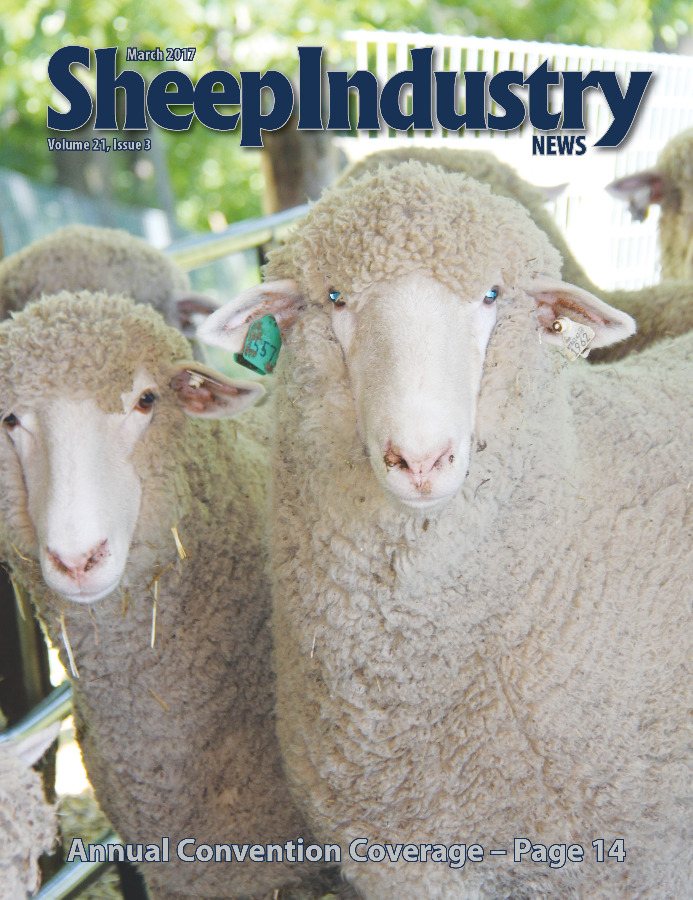
- March 2017
- President’s Notes
- Montana Sheep Conflicts Examined
- ASI Headed to Washington this Month
- Hahn Tops Shearing Field
- Convention: American Wool…Branded for the Future
- Convention: Branding American Wool
- Convention: Officers, Executive Board Elected
- Convention: Industry Veterans Honored
- Convention: Abiding by VFD Regulations
- Convention: States Share Highlights, Challenges
- Convention: Social Media Takes Center Stage
- Convention: FMD Focus of Animal Health
- Convention: WS Aerial Program a Priority
- Convention: Preparing for the New Farm Bill
- Convention: PERC Hears from Researchers
- Convention: EBVs Pay Off for Producers
- Convention: Lamb News is Encouraging
- Convention: The Fleece Awakens at MIWW
- Webinars Prove Informative
- Round 5 of Let’s Grow Grants Open
- Market Report
- The Last Word
WS Aerial Program a Priority
CHASE ADAMS
ASI Senior Policy and Information Director
Bill Clay, Deputy Administrator of USDA/APHIS Wildlife Services addressed the Resource Management Council during its meeting at the ASI Annual Convention and stressed the agency’s continued support of lethal and non-lethal predator control.
The importance of the fixed wing aerial program was a major topic as producers expressed their reliance on that program and Clay outlined a number of new initiatives aimed at enhancing the program and ensuring the safety of USDA/APHIS personnel, both in the air and on the ground.
Dave Eliason, the producer president, and Ethan Lane, executive director of the Public Lands Council gave an update on issues affecting public lands ranchers and specific areas where the Trump administration might be interested in engaging with sheep producers. The PLC and ASI have been working with the presidential transition team and Congress to ensure certainty for federal permittees through Endangered Species Act reform, pushing back on prescriptive range management plans for the greater sage grouse and opposing the continued abuse of environmental litigation and monument designations under the Antiquities Act.
Nationwide, 50 percent of our nation’s sheep flock spend time on public lands and public lands ranchers save the federal government $750 million annually in land management costs.
In addition to an update on the National Grazing Lands Coalition by Ben Lehfeldt from Montana, Dr. Don Knowles and Dr. Maggie Highland gave an update on current research into conflicts between domestic and wild sheep. While regulatory preference has been given to wild sheep habitat at the expense of domestic sheep grazing allotments, the research currently being conducted by the U.S. Sheep Experiment Station and the Animal Disease Research Unit is critical to understand the underlying causes and ensuring domestic sheep grazing continues across the west.
The council approved a resolution of continued support for the U.S. Sheep Experiment Station and the merger of that facility with the Animal Disease Research Unit to sustain their invaluable roles in food-animal science, rangeland research and animal health programs. In addition, the council and the board also renewed resolutions affirming ASI’s support for private property rights and education to reduce the conflicts on federal lands between permittees and recreational users.

